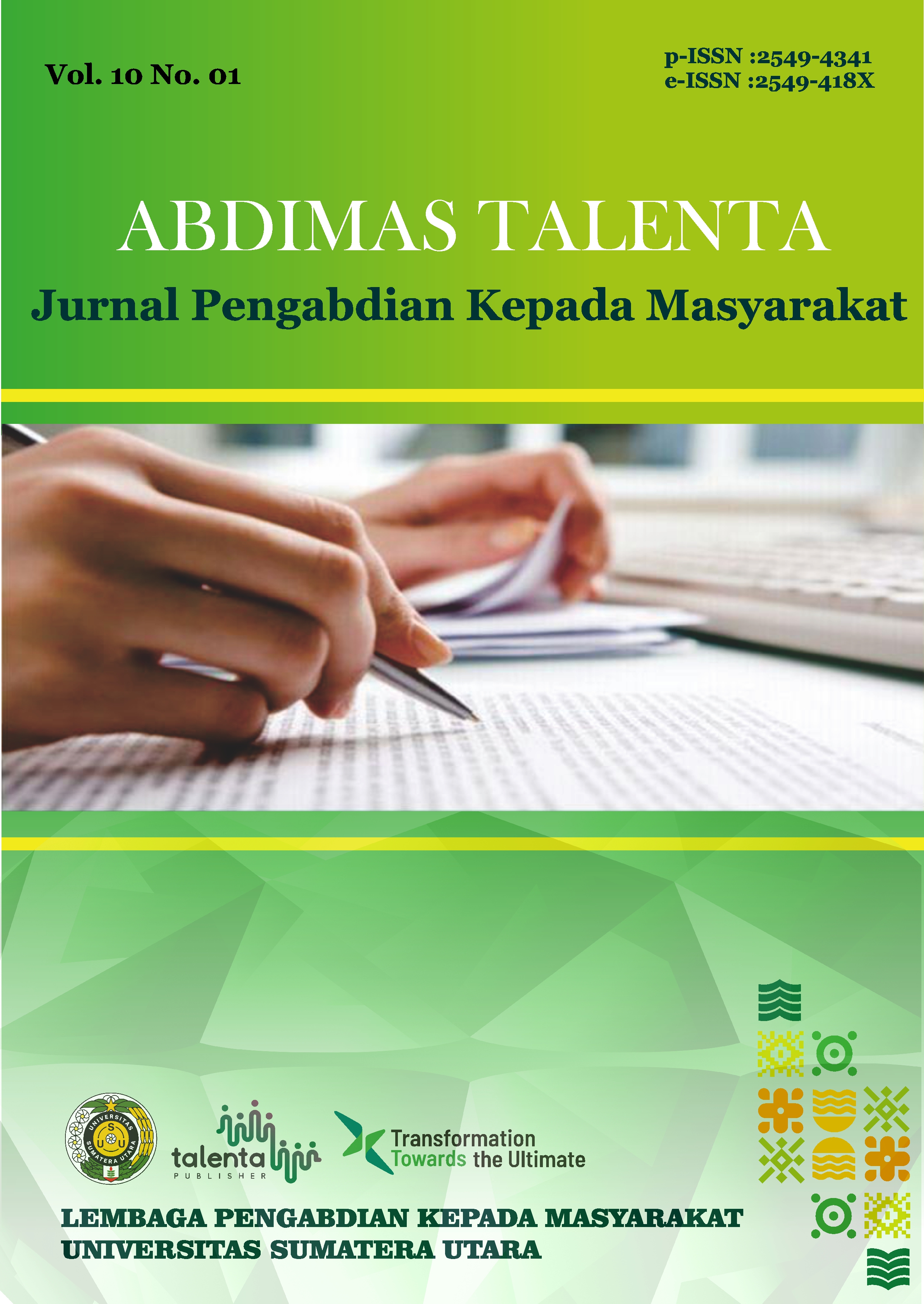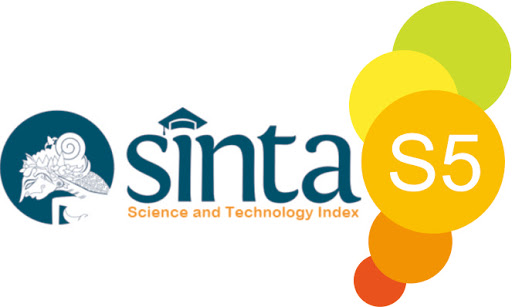Institutional Capacity Improvement Training Supports the Management of GLNP in Climate Change Mitigation
DOI:
https://doi.org/10.32734/abdimastalenta.v10i1.19005Keywords:
Environment, Interviews, Climate Change, Local CommunityAbstract
Gunung Leuser National Park (GLNP) is one of Indonesia's most important conservation areas. Around GLNP, there are a group manages bamboo forests in Pamah Simelir Hamlet. This activity aims to carry out outreach activities to increase the institutional capacity of sustainable bamboo communities to support the management of GLNP buffer areas in mitigating climate change. The activity methods include lecture methods, group discussions, brainstorming, role-playing, collective problem-solving, questionnaires and interviews with groups, and Focus Group Discussions (FGD). The results of the training activities showed that the group's technical skills had improved, especially in managing bamboo forests as part of conservation and climate change mitigation efforts. They can apply the techniques taught, such as planting and maintaining bamboo in a sustainable manner, as well as using bamboo as a raw material with economic value. Increasing these skills can reduce pressure on forest areas and improve the welfare of local communities. The training carried out has succeeded in positively boosting the institutional capacity of the Bambu Lestari Community, both in technical, managerial, and collaboration aspects. This activity can become a reference for local governments and stakeholders in adopting an inclusive and sustainability-oriented approach while involving local communities as partners in preserving the environment and facing the challenges of climate change.
Downloads
Published
Issue
Section
License
Copyright (c) 2025 ABDIMAS TALENTA: Jurnal Pengabdian Kepada Masyarakat

This work is licensed under a Creative Commons Attribution-ShareAlike 4.0 International License.
The Authors submitting a manuscript do so on the understanding that if accepted for publication, copyright of the article shall be assigned to Jurnal Abdimas TALENTA as well as TALENTA Publisher Universitas Sumatera Utara as the publisher of the journal.
Copyright encompasses exclusive rights to reproduce and deliver the article in all forms and media. The reproduction of any part of this journal, its storage in databases and its transmission by any form or media, will be allowed only with written permission from Jurnal Abdimas TALENTA.
The Copyright Transfer Form can be downloaded here.
The copyright form should be signed originally and sent to the Editorial Office in the form of original mail or scanned document.












